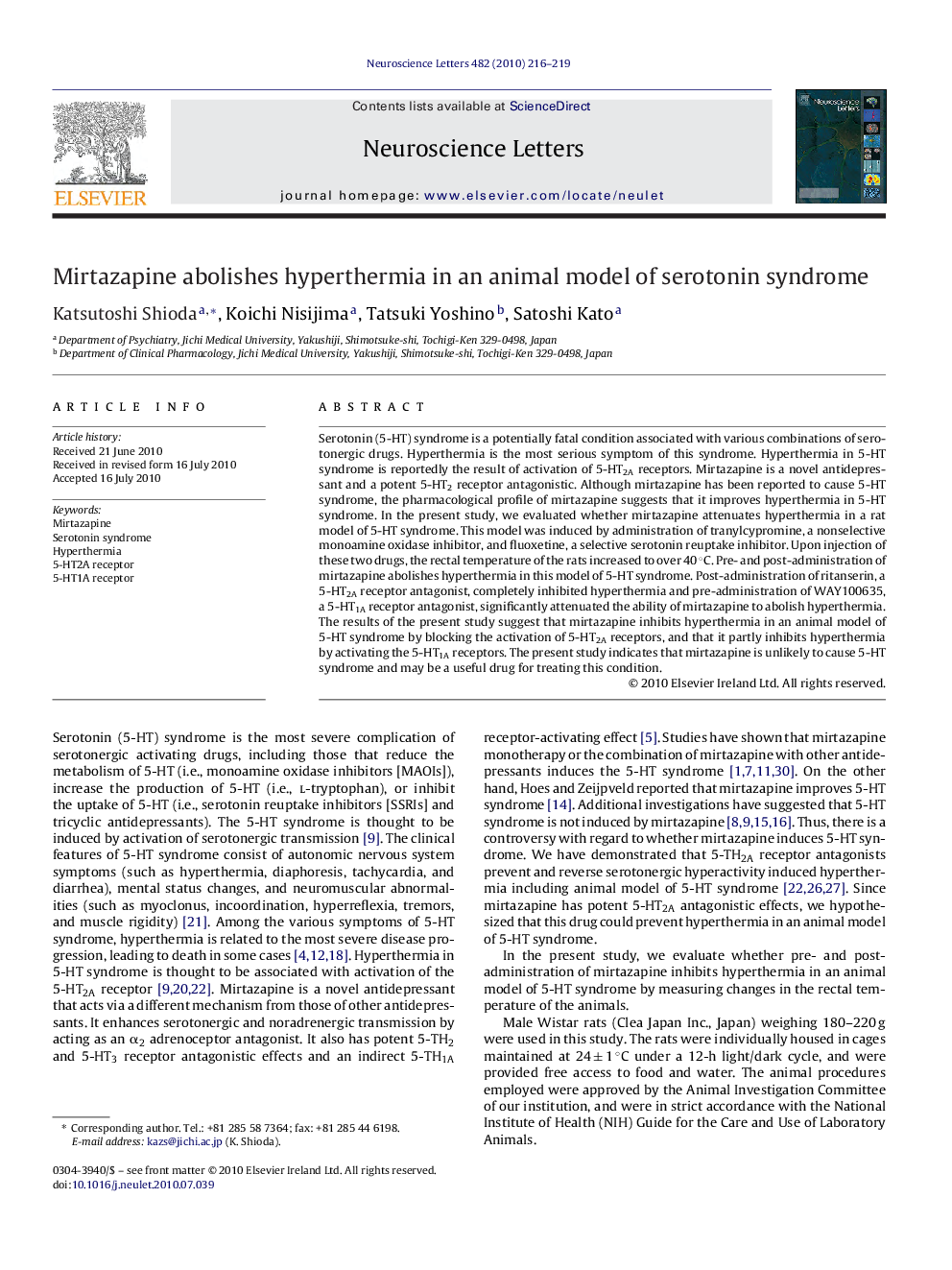| Article ID | Journal | Published Year | Pages | File Type |
|---|---|---|---|---|
| 4346090 | Neuroscience Letters | 2010 | 4 Pages |
Abstract
Serotonin (5-HT) syndrome is a potentially fatal condition associated with various combinations of serotonergic drugs. Hyperthermia is the most serious symptom of this syndrome. Hyperthermia in 5-HT syndrome is reportedly the result of activation of 5-HT2A receptors. Mirtazapine is a novel antidepressant and a potent 5-HT2 receptor antagonistic. Although mirtazapine has been reported to cause 5-HT syndrome, the pharmacological profile of mirtazapine suggests that it improves hyperthermia in 5-HT syndrome. In the present study, we evaluated whether mirtazapine attenuates hyperthermia in a rat model of 5-HT syndrome. This model was induced by administration of tranylcypromine, a nonselective monoamine oxidase inhibitor, and fluoxetine, a selective serotonin reuptake inhibitor. Upon injection of these two drugs, the rectal temperature of the rats increased to over 40 °C. Pre- and post-administration of mirtazapine abolishes hyperthermia in this model of 5-HT syndrome. Post-administration of ritanserin, a 5-HT2A receptor antagonist, completely inhibited hyperthermia and pre-administration of WAY100635, a 5-HT1A receptor antagonist, significantly attenuated the ability of mirtazapine to abolish hyperthermia. The results of the present study suggest that mirtazapine inhibits hyperthermia in an animal model of 5-HT syndrome by blocking the activation of 5-HT2A receptors, and that it partly inhibits hyperthermia by activating the 5-HT1A receptors. The present study indicates that mirtazapine is unlikely to cause 5-HT syndrome and may be a useful drug for treating this condition.
Related Topics
Life Sciences
Neuroscience
Neuroscience (General)
Authors
Katsutoshi Shioda, Koichi Nisijima, Tatsuki Yoshino, Satoshi Kato,
